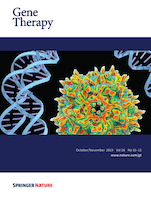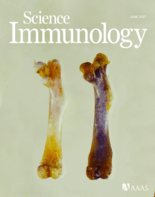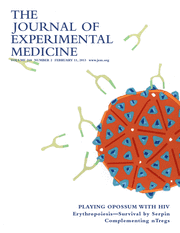
OncoImmunology
Scope & Guideline
Exploring the Frontiers of Cancer Immunology
Introduction
Aims and Scopes
- Tumor Microenvironment and Immune Interactions:
Research exploring how the tumor microenvironment influences immune responses and the effectiveness of immunotherapies. This includes studies on immune cell infiltration, cytokine profiles, and the metabolic pathways that modulate immune cell function. - Innovative Immunotherapy Approaches:
Focus on the development and evaluation of new immunotherapy strategies, such as CAR-T cell therapies, immune checkpoint inhibitors, and oncolytic viruses. The journal emphasizes studies that demonstrate clinical efficacy and mechanistic insights. - Biomarkers and Predictive Models:
Identification and validation of biomarkers that predict patient responses to immunotherapy. This includes genomic, proteomic, and transcriptomic analyses to develop personalized treatment approaches. - Mechanisms of Immune Evasion:
Investigating the various mechanisms by which tumors evade immune detection and destruction, including the roles of immune checkpoint molecules, tumor-associated macrophages, and regulatory T cells. - Clinical Trials and Translational Research:
Reports on clinical trials and translational studies that bridge the gap between laboratory findings and clinical application, aiming to improve patient outcomes through novel immunotherapeutic strategies.
Trending and Emerging
- Combination Immunotherapy Strategies:
There is a growing emphasis on combination therapies that integrate various modalities, such as immune checkpoint inhibitors with targeted therapies, to enhance antitumor efficacy and overcome resistance. - Personalized Immunotherapy:
Research focusing on personalized approaches to immunotherapy is on the rise, including the use of genomic profiling and biomarker-driven strategies to tailor treatments to individual patient needs. - Role of the Microbiome in Cancer Therapy:
Emerging studies are examining the influence of the microbiome on immune responses to cancer therapies, highlighting its potential role in modulating treatment outcomes. - Innovations in CAR-T Cell Therapy:
Advancements in CAR-T cell technology, including the development of novel constructs and strategies to enhance their efficacy against solid tumors, are becoming a key area of research. - Cellular Immunotherapy Beyond T Cells:
Research is expanding to include other immune cell types, such as NK cells and gamma-delta T cells, in immunotherapeutic strategies, recognizing their potential in cancer treatment.
Declining or Waning
- Basic Science Studies:
There is a noticeable decrease in purely basic science studies that do not have direct applications to immunotherapy or clinical outcomes. Research is increasingly focused on translational and clinical applications. - Single-Agent Immunotherapies:
Research on single-agent immunotherapies is waning as the field moves towards combination therapies that leverage multiple mechanisms of action to enhance efficacy and overcome resistance. - Conventional Chemotherapy Integration:
Investigations into the integration of traditional chemotherapy with immunotherapy have seen a decline, as newer approaches focusing on immune modulation and targeted therapies gain traction. - Animal Models with Limited Relevance:
Studies utilizing animal models that do not adequately mimic human immune responses or tumor biology are becoming less common, as the field prioritizes more clinically relevant models.
Similar Journals

CANCER GENE THERAPY
Pioneering Research in Cancer Gene TherapyCancer Gene Therapy, published by SpringerNature, stands at the forefront of research in the fields of cancer research, molecular biology, and molecular medicine. With a robust impact factor reflecting its significant influence—ranking in the Q2 category for cancer research and Q1 for both molecular biology and molecular medicine—it serves as an essential resource for scholars and practitioners alike. Since its inception in 1994, the journal has dedicated itself to advancing the understanding and therapeutic application of genetic innovations in oncology. Notably, it holds distinguished Scopus ranks, placing it among the top tier journals in its categories, underscoring its importance to the scientific community. While open access options are not available, the compelling research published here offers invaluable insights into the latest advancements and strategies in cancer therapy. Engaging with *Cancer Gene Therapy* not only keeps professionals informed but also inspires future innovations in the quest for effective cancer treatments.

EUROPEAN JOURNAL OF IMMUNOLOGY
Bridging Research and Application in ImmunologyWelcome to the European Journal of Immunology, a premier peer-reviewed journal dedicated to advancing the field of immunology and allergy research. Established in 1971 and published by Wiley, this esteemed journal has been consistently ranked in the top quartile (Q1) across its categories, highlighting its significant impact within the scientific community. With an impressive Scopus ranking, the journal occupies the 64th position in Immunology and Allergy and the 74th in the broader sector of Immunology and Microbiology, demonstrating its vital role in driving innovation and knowledge in immunological studies. The European Journal of Immunology publishes high-quality original research, comprehensive reviews, and insightful commentary, making it an indispensable resource for researchers, healthcare professionals, and students dedicated to understanding the complexities of the immune system. Although not an open-access journal, it offers various subscription options to ensure that institutions and individuals can access pivotal research that shapes the future of immunology.

Immunity Inflammation and Disease
Championing open science in the study of immune mechanisms.Immunity, Inflammation and Disease is a premier open-access journal published by WILEY, dedicated to advancing the field of immunology and allergy. Launched in 2013, this journal has established itself as a significant platform for researchers and professionals to disseminate high-quality research findings and innovative insights that address critical issues in immune responses and inflammatory diseases. With an impact factor that reflects its growing influence and a current ranking in Q3 for Immunology and Q2 for Immunology and Allergy, this journal serves a diverse audience keen on exploring cutting-edge developments. Researchers are encouraged to submit their work to share their findings with a global reach, foster collaboration, and enhance the understanding of immune mechanisms and therapeutic strategies. Accessible since its inception, Immunity, Inflammation and Disease is committed to open science, ensuring that vital research is freely available for the advancement of knowledge within the academic community and beyond.

BMC IMMUNOLOGY
Unlocking the Mysteries of the Immune SystemBMC Immunology is a prominent open-access journal published by BMC that has been at the forefront of immunological research since its inception in 2000. Based in the United Kingdom, this journal aims to advance the understanding of immune system functions and disorders through high-quality, peer-reviewed articles. With an impressive scope encompassing various facets of immunology, BMC Immunology has earned a Q3 ranking in the Immunology category according to the 2023 category quartiles, demonstrating its growing impact and relevance in the scientific community. Researchers and professionals will find valuable insights in its array of published works, spanning both foundational studies and innovative applications. The journal's commitment to open access ensures that cutting-edge research is freely available, fostering collaboration and advancement in the field. For those looking to stay updated on the latest developments in immunology, BMC Immunology stands as an essential resource for researchers, professionals, and students alike.

GENE THERAPY
Unleashing the Future of Molecular MedicineGENE THERAPY, published by SpringerNature, is a prestigious academic journal at the forefront of research in the fields of genetics, molecular biology, and molecular medicine. Since its inception in 1994, this journal has evolved into a vital resource for scholars, practitioners, and students, providing cutting-edge insights into gene therapy techniques and innovations. With an impressive impact factor reflecting its significant influence— ranking in the Q1 quartile across multiple categories in 2023—GENE THERAPY offers rigorous peer-reviewed articles that address both basic and applied aspects of gene therapy. The journal is recognized for its role in promoting advancements in therapeutic strategies, thus enhancing understanding of genetic disorders and treatment efficacy. Researchers will find this journal invaluable for publishing their findings, staying updated on the latest breakthroughs, and fostering interdisciplinary collaborations. Engage with the latest in gene therapy by accessing this influential platform, and contribute to a field that holds the potential to transform healthcare outcomes worldwide.

INTERNATIONAL JOURNAL OF ONCOLOGY
Empowering breakthroughs in oncology and patient care.INTERNATIONAL JOURNAL OF ONCOLOGY is a leading academic publication dedicated to advancing the field of cancer research and treatment. Published by SPANDIDOS PUBL LTD in Greece, this journal, with ISSN 1019-6439 and E-ISSN 1791-2423, has established itself as a reputable source of peer-reviewed articles since its inception in 1993. With an impressive Q2 ranking in both Cancer Research and Oncology categories, as well as high Scopus ranks reflecting its significant contribution to the fields of Medicine and Biochemistry, the journal offers a platform for researchers, clinicians, and students alike to disseminate their findings and engage in dialogue surrounding innovative practices and breakthroughs. Although the journal follows a traditional subscription model, it continues to attract a diverse readership interested in the latest developments in oncological research, providing essential insights into cancer biology, therapeutics, and patient care. With a commitment to excellence, the INTERNATIONAL JOURNAL OF ONCOLOGY plays a vital role in shaping the future of oncology research and is a must-read for anyone passionate about advancing cancer treatment and prevention.

Science Immunology
Connecting Science and Solutions in ImmunologyScience Immunology, published by the American Association for the Advancement of Science, is a leading journal in the field of immunology, recognized for its significant impact and rigor in advancing our understanding of immune responses and complex diseases. With an impressive impact factor that places it in the Q1 category of both immunology and allergy, as well as miscellaneous medicine, this journal is ranked #7 and #8 in their respective Scopus categories, reflecting its high-quality research output. Since its inception in 2016, Science Immunology has been at the forefront of interdisciplinary immunological research, fostering crucial insights that link immunology with pressing health challenges. The journal is committed to providing open access to its content, ensuring that groundbreaking findings are accessible to a global audience of researchers, professionals, and students. Its anthology not only addresses fundamental immunological mechanisms but also enhances the dialogue on translational applications and therapeutic interventions, solidifying its position as an essential resource within the scientific community.

JOURNAL OF EXPERIMENTAL MEDICINE
Unraveling Complexities in Immunology and BeyondJOURNAL OF EXPERIMENTAL MEDICINE, published by Rockefeller University Press, is a renowned peer-reviewed journal dedicated to advancing the field of experimental medicine since its inception in 1896. With an impressive impact factor and categorized in the Q1 quartile for Immunology, Immunology and Allergy, and Miscellaneous Medicine, this journal stands at the forefront of medical research and innovation. It provides a prestigious platform for scholars and practitioners to disseminate groundbreaking findings that drive the understanding of disease mechanisms and therapeutic strategies. While the journal is not open access, it maintains high visibility and engagement within the scientific community, fostering collaboration among researchers, professionals, and students alike. The journal's consistent ranking in the top percentiles of Scopus illustrates its significant impact and commitment to excellence in medical research.

JOURNAL OF IMMUNOLOGY
Empowering the Future of Immune ResearchWelcome to the JOURNAL OF IMMUNOLOGY, a prestigious publication associated with the American Association of Immunologists and dedicated to advancing the field of immunology. With a rich history dating back to 1945, this journal is renowned for its high-impact research, evident in its notable 2023 Q1 rankings in both Immunology and Allergy, as well as its strong positions in Scopus rankings—Rank #68 in Immunology and Allergy and Rank #79 in Immunology and Microbiology. Although it operates on a subscription basis, its commitment to publishing cutting-edge studies ensures that it remains a vital resource for scientists, healthcare professionals, and students alike. As the journal continues to pave the way for innovative research and breakthroughs in immunological science, it facilitates a platform for dialogue and discovery among researchers and practitioners across the globe.

Immunotherapy
Shaping the Landscape of Immune Response and TreatmentImmunotherapy, published by Future Medicine Ltd, is a leading journal focused on the evolving field of immunotherapy within the realms of immunology, oncology, and allergy. With an ISSN of 1750-743X and an E-ISSN of 1750-7448, this academic journal has been at the forefront of groundbreaking research since 2009, and continues to illuminating insights in a landscape critical for the development of innovative therapeutic strategies through 2024. Positioned within Q2 and Q3 quartiles in various relevant categories, the journal ranks commendably in Scopus metrics, exhibiting robust engagement and relevance in Oncology and Immunology. It serves as an essential resource for researchers, clinicians, and students eager to stay abreast of advancements in immunotherapy, while also providing an open platform for sharing impactful studies. By disseminating high-quality research, Immunotherapy fosters a global dialogue among professionals and contributes significantly to the scientific community's collective knowledge on the increasing role of immune-based therapies in disease management.